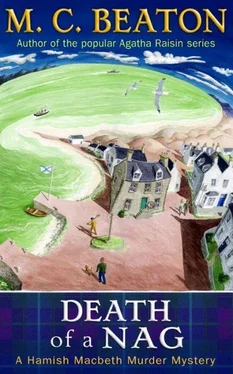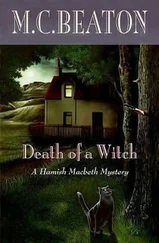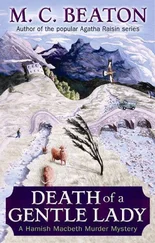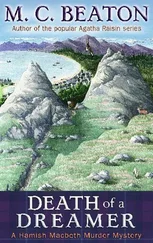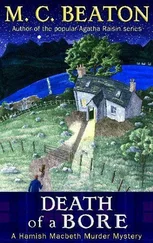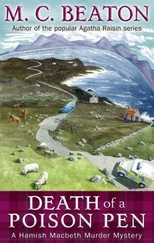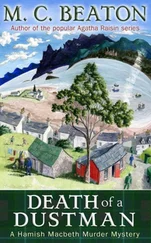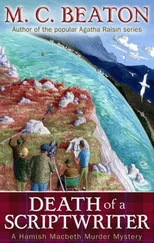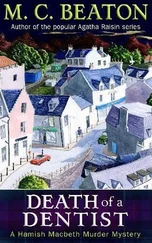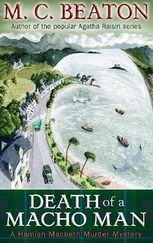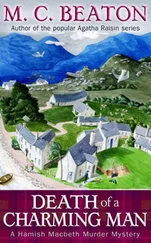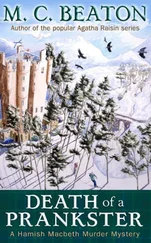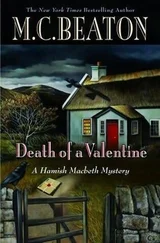M.C. Beaton - Death of a Nag
Здесь есть возможность читать онлайн «M.C. Beaton - Death of a Nag» весь текст электронной книги совершенно бесплатно (целиком полную версию без сокращений). В некоторых случаях можно слушать аудио, скачать через торрент в формате fb2 и присутствует краткое содержание. Жанр: Старинная литература, на английском языке. Описание произведения, (предисловие) а так же отзывы посетителей доступны на портале библиотеки ЛибКат.
- Название:Death of a Nag
- Автор:
- Жанр:
- Год:неизвестен
- ISBN:нет данных
- Рейтинг книги:5 / 5. Голосов: 1
-
Избранное:Добавить в избранное
- Отзывы:
-
Ваша оценка:
- 100
- 1
- 2
- 3
- 4
- 5
Death of a Nag: краткое содержание, описание и аннотация
Предлагаем к чтению аннотацию, описание, краткое содержание или предисловие (зависит от того, что написал сам автор книги «Death of a Nag»). Если вы не нашли необходимую информацию о книге — напишите в комментариях, мы постараемся отыскать её.
Death of a Nag — читать онлайн бесплатно полную книгу (весь текст) целиком
Ниже представлен текст книги, разбитый по страницам. Система сохранения места последней прочитанной страницы, позволяет с удобством читать онлайн бесплатно книгу «Death of a Nag», без необходимости каждый раз заново искать на чём Вы остановились. Поставьте закладку, и сможете в любой момент перейти на страницу, на которой закончили чтение.
Интервал:
Закладка:
Hamish shouted, “Look, man, I’m trying to have a peaceful night, and if you don’t stop nagging your wife, I’ll kill you, you bastard!”
The normally mild-mannered Hamish heard the echoes of his voice echoing around the silent house, the listening house.
“You long drip of nothing!” Bob Harris swung a punch at Hamish, who blocked it and then socked him right in the nose.
“Jist shut up!” roared Hamish.
He went back to his room and slammed the door.
An almost eerie silence fell on the boarding-house. Hamish shrugged. He hoped that would shut the nag up for the rest of the holiday.
♦
The residents of The Friendly House awoke to a new day. Mr Rogers, enjoying the first cup of coffee of the day, said to his wife, “Did you hear that rumpus last night?”
“Aye,” said Mrs Rogers. “I heard that Macbeth fellow threatening to kill Harris.”
“Someone should kill him.” Mr Rogers moodily stirred his coffee, a new brand, miles cheaper than anything else on the market and tasting as if it were made from dandelion roots instead of coffee beans. “D’ye know what he said to me last night, afore his wife came back wi’ the others?”
Mrs Rogers was silent. She had heard all about what Bob Harris had said to her husband, but to point this out would just make him furious. Like most men with a bad memory, Mr Rogers considered that everyone else in general and his wife in particular were the ones with bad memories.
“He says to me, he says, “I am going to report your place to the tourist board as a cheap-skate outfit. The food’s vile.” Can you credit that? Cheek! The place is the cheapest in Scotland for the price. Whit does he expect, champagne and caviare?”
“Can’t stop him,” said Mrs Rogers.
Mr Rogers stirred his coffee ferociously. “Ho, no? We’ll see about that.”
♦
“Was that our Hamish on the war-path?” June asked Dermott as she dressed Fiona.
“He was saying as how he would kill Bob and then I think he socked him one.”
“I can’t see Hamish hitting anyone. Probably that bastard was punching Doris at the time.”
“Hamish said he would kill him.”
“Not a bad idea. You know what Bob’s threatening to do?”
Dermott walked to the window and looked out. His fat face was creased with worry. “He wouldn’t actually do it, June. Would he?”
“I don’t know. How will we stop him?”
“Maybe Hamish will kill him,” said Dermott with a harsh laugh. “That would solve all our problems.”
♦
Miss Gunnery, Andrew, Cheryl and Tracey were the first in the breakfast room. Cheryl’s eyes gleamed with excitement. “Well, whit did ye think o’ last night?”
“I enjoyed the dance,” said Miss Gunnery, primly shaking out her paper napkin and noticing with a frown that it was the same one she had had since she arrived. Surely the Rogerses did not expect one paper napkin each to last the whole stay?
“Wisnae talking about the dance, wis we, Tracey?” said Cheryl. “Its aboot Hamish. Did ye hear the row?”
“I never listen to other people’s conversations,” said Miss Gunnery repressively.
“Ye couldnae miss hearing it,” pointed out Tracey. “First it was Bob giving Doris laldy, saying as how Andrew was a poofter. Then Hamish tells him to shut it and next thing I hears is Hamish saying he’ll kill him and the sound of a blow.”
“I am amazed such as Bob Harris has managed to live this long,” said Miss Gunnery. “Mr Macbeth is a gentleman and no doubt the provocation was great. Do you not think so, Mr Biggar?”
Andrew looked up from the book he was reading. “The man bores me,” he said shortly. “But, yes, he ought to be put down.”
They fell silent as Bob Harris came in on his own. Cheryl and Tracey stared avidly at his swollen nose. Then Hamish entered, said a cheerful, “Good morning” all round and took his place at the table.
He was just about to strike up a conversation with Miss Gunnery, mainly to ignore the glowering looks he was getting from Bob, when two policemen entered the dining room, and behind them came Doris, who slipped quietly into her chair.
“Mr Harris?” asked the first policeman, looking around.
“That’s me,” said Bob truculently.
“I am Police Constable Paul Crick, and this is Police Constable Peter Emett. You phoned the station this morning?”
“Yes.” Bob Harris got to his feet. “I want to charge this man, Hamish Macbeth, with assault.”
“Which is Mr Macbeth?”
Hamish stood up as well.
“Well,” said Paul Crick, “if you two gentlemen will jist step outside.”
“You can use the lounge,” said Mr Rogers.
He ushered the small party across the hall.
“Tell us what happened,” said Crick after he had closed the door of the lounge on Mr Rogers. “We’ll begin at the beginning. Your name is Mr Robert Harris, is it not?”
“Yes.”
“Your address?”
“Elmlea, South Bewdley Road, Evesham.”
“Aye, that would be in Worcestershire.”
“Correct.”
“Job?”
“Double-glazing salesman.”
Crick turned to Hamish. Hamish knew he would need to tell them he was a policeman.
They would probably haul him off down to the station. The very idea that one of their own had been involved in any misdemeanor was enough to make them more harsh than they would be towards an ordinary member of the public.
The door opened and Doris and Miss Gunnery stood there. “You must not listen to my husband,” said Doris. “Hamish was protecting himself. My husband attacked him.”
“You bitch!” roared Bob Harris.
“I heard the whole thing, as did the other residents,” declared Miss Gunnery. “Mr Harris had been keeping us awake by shouting at his wife.”
Crick looked at Hamish. “Is this true?”
“He tried to punch me,” said Hamish. “Yes, I was defending myself.” He knew this to be true. He had felt a great wave of satisfaction when his own punch had connected with Bob’s nose.
Crick flicked his notebook closed and turned to Bob. “Before you go ahead with this complaint, sir,” he said, “you’re not going to get very far wi’ it if your ain wife is going to get up in the sheriff’s court and say it was your fault.”
“And the rest of us,” said Miss Gunnery.
“The hell with the lot of you,” roared Bob Harris. “You Scotch police are so damn lazy, you just don’t want to investigate anything.”
“You’d better watch your mouth,” snapped Crick. “Do you want to proceed with this charge or not?”
“Forget it, forget it.” Bob pushed his way roughly past his wife and Miss Gunnery and left the room.
Crick and Emett turned to Hamish. They were remarkably alike, being quite small for policemen, and both with sandy hair and pale-grey eyes. “Don’t be so handy wi’ your fists in future, Mr Macbeth,” said Crick.
They both left. “That was verra good of you,” said Hamish to Doris, “but he’ll never forgive you.”
“Never forgive me, never forgive me,” said Doris tearfully. “Well, he can add it to the mile-long list of things he’s never going to forgive me for…breathing being one of them.”
She buried her face in Miss Gunnery’s thin shoulder and began to sob.
Hamish walked out quickly. He was weary of the people in the boarding-house and homesick for Lochdubh. He did not return to the breakfast room but collected Towser and headed along the beach, moodily throwing stones into the sea.
At last he returned. He saw, as he approached, the small figure of Doris Harris hurrying off in the direction of the village. When he went in, the boarding-house was silent. Not a sound. He settled Towser in the bedroom with a bowl of food and a bowl of fresh water and went out again, this time towards Skag, but keeping a wary eye out for any of the other residents so that he could avoid them.
Читать дальшеИнтервал:
Закладка:
Похожие книги на «Death of a Nag»
Представляем Вашему вниманию похожие книги на «Death of a Nag» списком для выбора. Мы отобрали схожую по названию и смыслу литературу в надежде предоставить читателям больше вариантов отыскать новые, интересные, ещё непрочитанные произведения.
Обсуждение, отзывы о книге «Death of a Nag» и просто собственные мнения читателей. Оставьте ваши комментарии, напишите, что Вы думаете о произведении, его смысле или главных героях. Укажите что конкретно понравилось, а что нет, и почему Вы так считаете.
